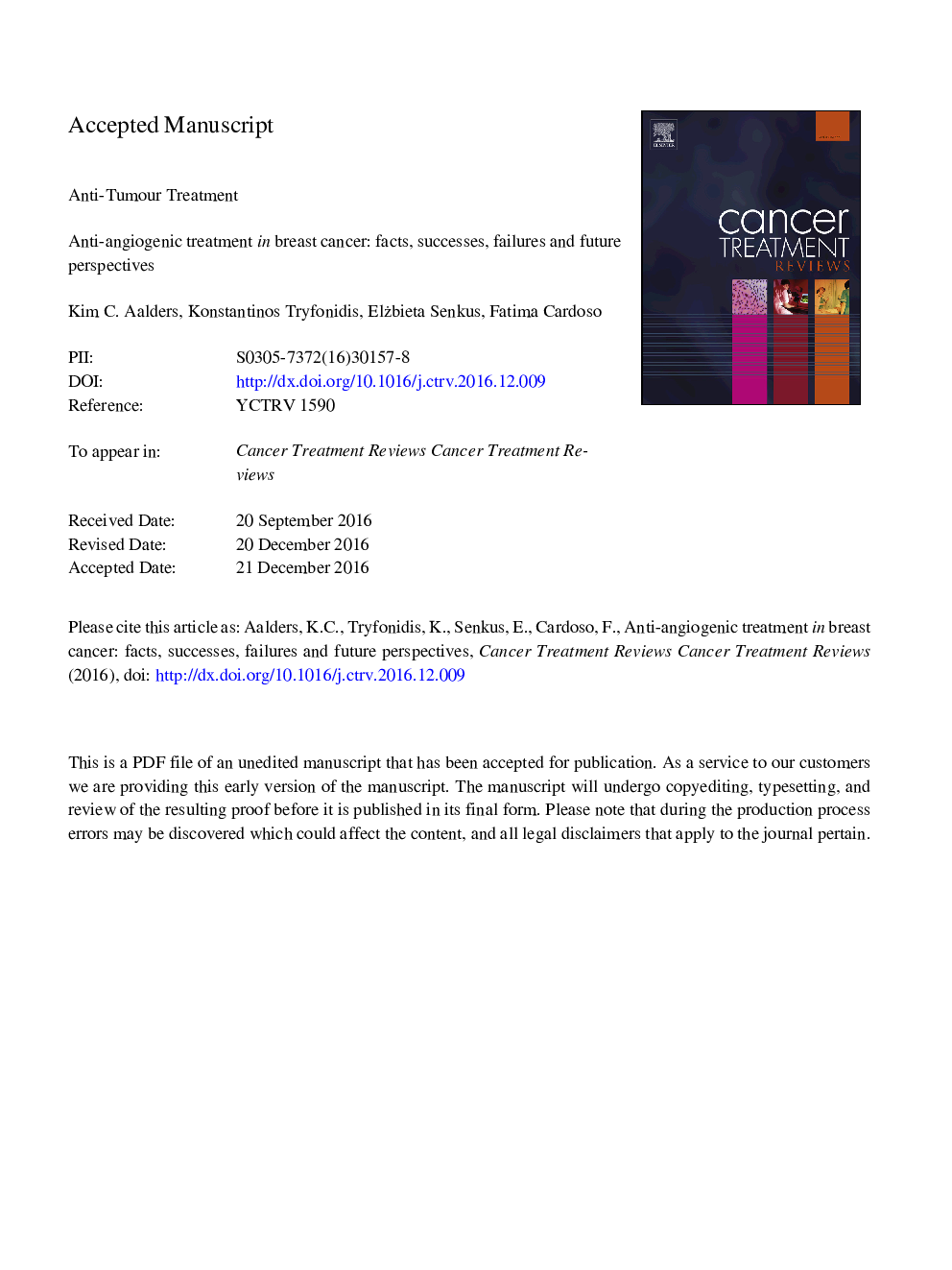| Article ID | Journal | Published Year | Pages | File Type |
|---|---|---|---|---|
| 5697681 | Cancer Treatment Reviews | 2017 | 39 Pages |
Abstract
Angiogenesis is one of the hallmarks of cancer and a crucial requisite in the development of tumors. Interrupting this process by blocking the vascular endothelial growth factor (VEGF) with the monoclonal antibody bevacizumab has been considered a possible breakthrough in the treatment of various types of cancer, especially for advanced disease. However in breast cancer, studies have shown ambivalent results causing debate about the value of this drug. In this article, we review the evidence for anti-angiogenic treatment options for breast cancer, as well as discuss the possible factors limiting the effectiveness of anti-angiogenic agents and offer a recommendation regarding the future research on these therapies for the treatment of breast cancer.
Keywords
Related Topics
Health Sciences
Medicine and Dentistry
Oncology
Authors
Kim C. Aalders, Konstantinos Tryfonidis, Elżbieta Senkus, Fatima Cardoso,
